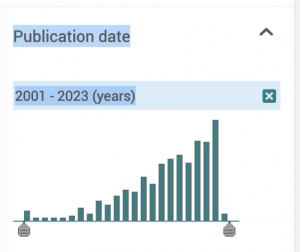Reflection topic 1, Digital litteracy
In our PBL-group we discussed the concept of digital literacy and how the understanding of the meaning of the concept has changed over time. We all contributed by reflecting upon a case where a person chare her/his feelings of insecurity vis a vi peers in a online course (like ours…). The feelings of being less competent in digital literacy is presented as the main problem in the case.
So the discussions in the group revolved around this case and our own experiences and our ideas of how to encourage someone who feel insecure. We also discussed the very concept of digital literacy and how we as teachers at the university can relate to digital learning environments.
I think that it is essential to know what the problem is. This as there is a difference between technical digital literacy and critical digital literacy. I have the impression that students often feel uncomfortable due to a feeling of insecurity technically in relation to entering a digital community/learning environment. This feeling might be in the way for developing critical literacy. In the same time, not everybody being “digital natives” have developed the competence of being critically literate in relation to digital resources and communities/places. Maybe we need “the digital immigrants” to get a critical distance to what digital education is contributing with?
Searching in ProQuest Eric (with the key-words “digital literacy” and education) and I found 759 peer-reviewed publications. Interesting to see that there are a significant augmentation in interest in research about this topic.

Picture from Eric’s search result. See one example of an article presenting some aspects of CDL below
Article: Critical Digital Literacy in Virtual Exchange for ELT Teacher Education: An Interpretivist Methodology by Bilki, Zeynep; Satar, Müge; Sak, Mehmet.
From abstract: [The] analysis revealed four components of CDL in this specific VE: (1) participants’ awareness of digital affordances for “self-expression,” (2) semiotic and interactional means to “build connections,” (3) ensuring “inclusiveness” of all community members, and (4) implications of “socio-political contexts” of each participant for meaning-making and interaction. We conclude that in future pedagogical implementations of VE, facilitators can foster trainee teachers’ CDL development through more closely guided and informed reflection on the four themes presented in this paper.